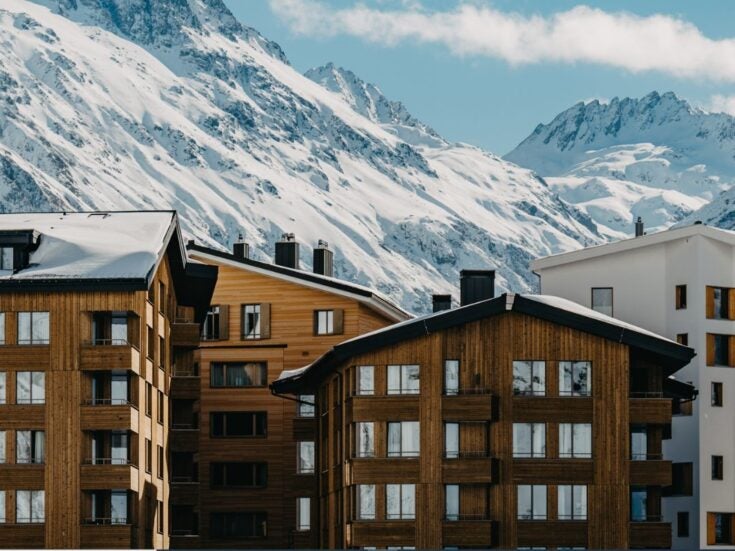
Ross Clark on the increasing number of super-prime, foreign-owned London properties that stand empty year in, year out
IF YOU’RE HAVING trouble deciding the colour of your kitchen, spare a thought for the man who bought a brand-new house in The Bishops Avenue, Hampstead, from estate agent Trevor Abrahamsohn a decade ago. ‘He didn’t like it as it was, but he can’t decide how he does want it,’ says Abrahamsohn. ‘So he has spent ten years refurbishing it.’
When he finally does finish refitting his house I hope he’s pleased with the results. But it won’t matter that much if he isn’t: the chances are that he won’t be spending a lot of time there. Few buyers at the top end of the London property market do nowadays. Between 50 and 70 per cent of properties worth over £10 million in Hampstead and Highgate are owned by international buyers, reckons Abrahamsohn, who runs Glentree Estates, and of those 70 per cent spend no more than two weeks a year actually living in the homes.
If, on any one night, you wanted to invite the neighbours around for a soirée at your Bishops Avenue home, it would be a pretty thinly attended occasion. In fact you might find yourself spending the entire evening — not unpleasantly, I’m sure — in the company of Katie Boyle, the octogenarian TV personality who is one of the last few residents to live in the street full-time.
Never have prime London homes been so luxurious — and so little lived-in. It’s a similar story down in Ed Mead’s patch in Belgravia and Kensington, which in terms of their permanent population — if not their appearance — are becoming a bit like downtown Detroit.
The plushest squares challenge even The Bishops Avenue for the title of Britain’s meanest neighbourhood for scouts on bob-a-job week. Between 60 and 65 per cent of properties — it seems inaccurate to call them ‘homes’ — are in the hands of international owners who use them no more than two weeks of the year, Mead reckons. And of the remaining 35 to 40 per cent most are pieds-à-terre used typically one or two nights a week.
‘I have driven through Eaton Square at 10pm, when you would expect a lot of people to be at home,’ says Mead, ‘and seen only one or two lights on. You think: what’s going on?’
LONDON PROPERTY HAS been a must-have for international investors since the 1970s, and they have made some huge capital gains since then, in spite of few people actually living there. But for a great number of London buyers property is an asset class that produces a high negative income. They don’t let their properties, but they do have to pay service charges of up to £10,000 a year. If they’re wise they also pay a caretaker, if not to live there then at least to pop in several times a day — and to fill the fridge on the rare occasions when the owner drops by.

Up in The Bishops Avenue, houses cost even more to run. Large gardens require constant maintenance, and the secluded nature of the houses demands staff on the premises all the time. Typically, says Abrahamsohn, a Bishops Avenue house will have a staff of five, consuming at least £150,000 in annual wages before other costs are taken into account.
Yet that hasn’t stopped more and more properties being bought by international buyers. It isn’t just the prospect of capital growth — which is unlikely to be as strong over the next decade as it was over the past one. The string of rebellions in the Arabic world has reminded us all of the value of owning assets in politically stable countries.
The growing trend for ghost houses in London’s premier residential districts doesn’t suit estate agents. British owners, says Mead, who works for Douglas & Gordon, tend to move every five years. But international owners, he says, will more typically hold on to them for twenty years, by which time they might have managed to spend a cumulative total of three months in their properties. Few people are going to feel sorry for estate agents denied lucrative deals, but it does concern a lot of people that neighbourhoods are dying.
THE LABOUR GOVERNMENT felt so strongly about empty properties in Britain that it introduced Empty Dwelling Management Orders to try to bring them back into use. These were legal devices allowing councils to requisition properties that had been empty for six months or more and rent them out to social tenants.
The orders were not aimed at wealthy owners in Belgravia, and there is no record of them having been used on properties there, but they certainly caused concern. The fear that a billionaire could technically have his home confiscated if he failed to spend a night there in six months led to the current government reforming the orders. Now, in order to be seized, homes must have spent at least two years empty and to have been subject to repeated acts of vandalism.
The change will help to secure the property portfolios of the super-rich, but it won’t do anything to revive the community spirit. After the 1987 hurricane, residents of Eaton Square spent the weekend fraternising with chainsaws as they cleared the communal gardens. Nowadays the fallen trees would remain undisturbed.







